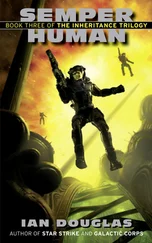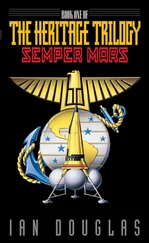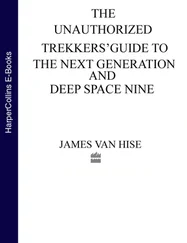But in 2412, Geneva had passed the Military First Right Act over two dissenting votes, Great Britain and the USNA. The star navies of Earth’s Confederation were the property, the military arm, and the responsibility of the Earth Confederation, not of any lone member state. North America, of course, and Great Britain had disagreed. For the two of them, ancient allies, the Earth Confederation had always been a loose alignment of independent nation-states, a planetary government more in name than in fact.
That this belief put the USNA at odds with every other Confederation member state save one seemed to have mattered little. Not until the Sh’daar Ultimatum in 2367 had there been a serious need for a united Earth military … and even then, the union had been an awkward and incomplete cooperation rather than a single-fleet command. Military First Right had been intended to change that … and, obviously, to prevent a repeat of the so-called Koenig’s Mutiny, which had led to his defeat of a combined French-British fleet at HD157950 in 2405.
That Koenig’s decision had been right was immaterial. He’d decided to face the Sh’daar forces in their own space, rather than assuming a purely defensive posture within Earth’s solar system, but, in so doing, left Earth open to a possible attack … an attack that, thank God, had never materialized. Geneva had acted to prevent such a situation from ever happening again—or, at least, so they’d planned it. That the Military First Right Act might backfire on them and lead to a civil war and the collapse of the Confederation seemed never to have entered their minds.
“This,” Longuet said, indicating another Confederation officer at the virtual table, “is Admiral Christian Delattre. He and his squadron are en route now to join the America battlegroup at Synchorbit. He will be assuming command of the battlegroup, at which point he will transfer his flag to the America , which shall become his flagship. Admiral Steiger, you will remain in command of the USNA battlegroup, but you will take your orders directly from Admiral Delattre. Is this understood?”
“I will need confirming orders from Columbus, sir,” Steiger said.
“No, Admiral, you will not,” Mykhaylo Serheyev said. Gray had to check a mental sidebar to see who the man was—the prime minister of the Ukrainian Union. “The Act of Military First Right is specific on this point. There was a final vote on this in Geneva just this morning, one that passed with a comfortable majority. Carrier Battlegroup Eighteen is now under direct Confederation control.”
“Nevertheless,” Steiger said, “it is my duty as a USNA officer to confirm these orders through my own government.”
“Of course, feel free to consult with your government,” Roettgen said. “But you are now working for us.”
“And if you resist, gentlemen,” Longuet added, “you will be replaced by officers who see political reason, by Confederation officers without your, ah, conflict of interest.”
And with a jolt, Gray was back in his office, alone with the monitors and virtual screens at his workstation. He and Steiger, it seemed, had just been summarily dismissed.
Not good , he thought. Not good at all …
Executive Office, USNA
Columbus, District of Columbia
United States of North America
1215 hours, EST
“Ms. Valcourt would like a moment for consultation, Mr. President,” his secretarial AI told him. “She says it is most urgent.”
Koenig looked up from a report displayed on his desktop—the Confederation robotic freighter Dione was landing at Giordano Bruno Base on the moon with an unusually large shipment of supplies—and sighed. He’d been expecting this. “Very well. Link me in.”
Julie Valcourt, a Canadian, was Speaker of the North American House, and one of Koenig’s more powerful opponents in the government. A member of the Global Union party, she was an outspoken advocate for the Global Union platform—that the USNA must fully integrate into the Confederation government.
“Good afternoon, Mr. President,” she said. “I haven’t yet had the opportunity to congratulate you on your victory.”
“Thank you, Madam Speaker,” Koenig replied. He knew, however, that congratulations were not the primary thought on Valcourt’s mind. The woman never did anything without a frank political motive behind it. “That’s very kind of you.”
“Not at all. The people, as they say, have spoken.”
“Well, some of them have.”
The news downloads were calling Koenig’s election victory a landslide and a popular mandate, but Koenig knew better. The population of North America currently stood at nearly three quarters of a billion people. Of those, perhaps half had bothered to link in and vote, and the only reason that the Freedom party had won was the stark fact that the Global Unionists and the Progressives hadn’t been able to agree on a common anti-Freedomist platform. The Progressives, like Koenig’s own Freedomists, wanted to extend the franchise to AIs; the Unionists feared the loss of human sovereignty and the possibility of second-class status for organic citizens somewhere down the line. But the Progressives felt that the military needed to be run by the Confederation, which of course was where they parted company with the Freedomists.
As a result the Progressives and the Unionists had knocked each other out of the running … but Koenig remained painfully aware that he’d been re-elected with just 44 percent of the vote. Despite the fireworks displays and enthusiastic mobs in the concourse, less than a quarter of North America’s population had actually voted for him.
“I thought,” Valcourt continued, “that you should know that the Europeans are going to be trouble.”
“Tell me something I don’t know.”
“They approached me yesterday with a question.”
“Yes?”
“Is the USNA population going to accept a Confederation take-over of our military?”
“Military First Right,” Koenig said, nodding. “I know.”
“You know ?”
“I was informed a few hours ago. Geneva has assumed command of one of our carrier battlegroups.”
“I … didn’t think they would move this quickly. Have you agreed to this?”
“Apparently, it doesn’t matter whether we agree or not. The battlegroup commander was simply told how it would be. We need to decide how we’re going to respond, however. We could refuse …”
“Civil war? A complete break with the Confederation?”
“It could come to that.” He thought for a moment. “Tell me, Madam Speaker, how did they approach you? In person?”
“No. It was a direct e-link.”
“Did you record it?”
“Apparently, Mr. President, the link was one-view specific.”
“Ah.”
E-links allowed data to be downloaded directly into the hardware nanotechnically grown within most people’s brains. Neural connections allowed what amounted to telepathy, mind-to-mind, as well as the downloading of information from the Global Net, direct interfaces with AIs or with machines—anything from a spacecraft to a door. And anything that was downloaded, from a conversation to an encyclopedia reference, could be stored … usually. Private messages could be embedded with code that erased the data as it was being transferred to memory. The recipient retained his or her organic memory of the message—though this was often fuzzy and indistinct, like the fast-evaporating memory of a dream—but there was nothing on record, nothing that could be uploaded to a database as, say, evidence for criminal proceedings.
“That message could be interpreted as an attempt by a foreign government to manipulate the election,” Koenig said.
Читать дальше












